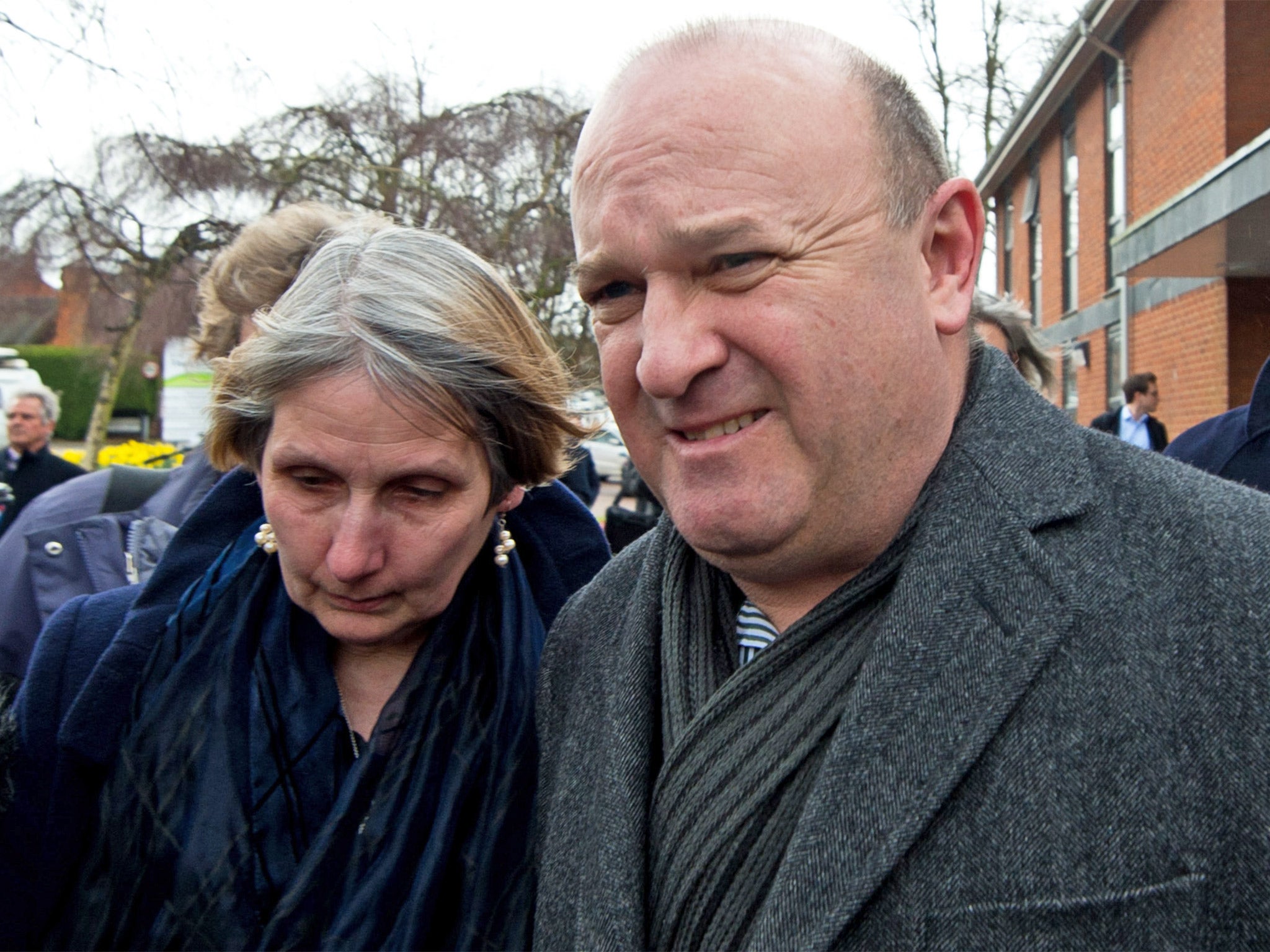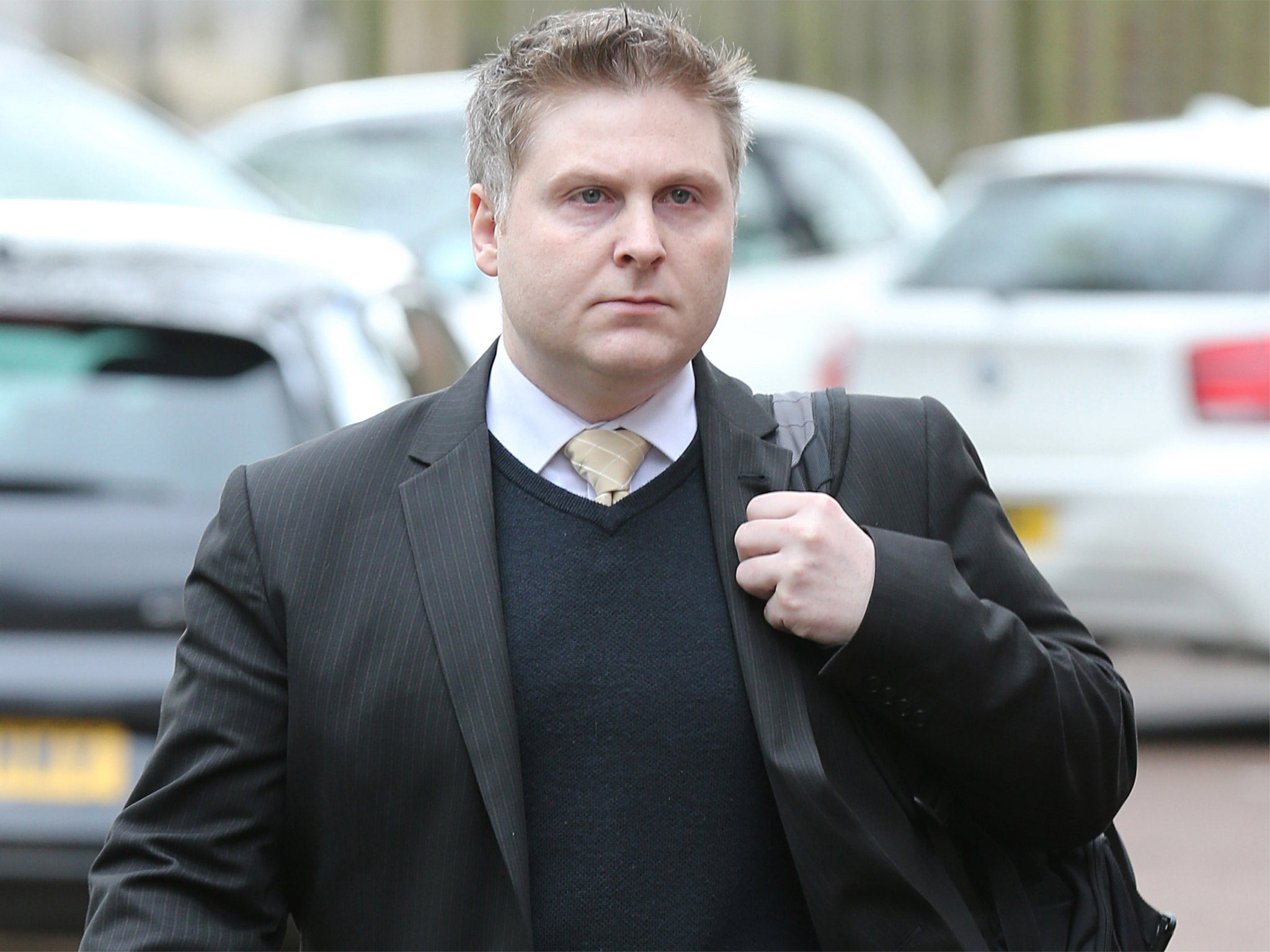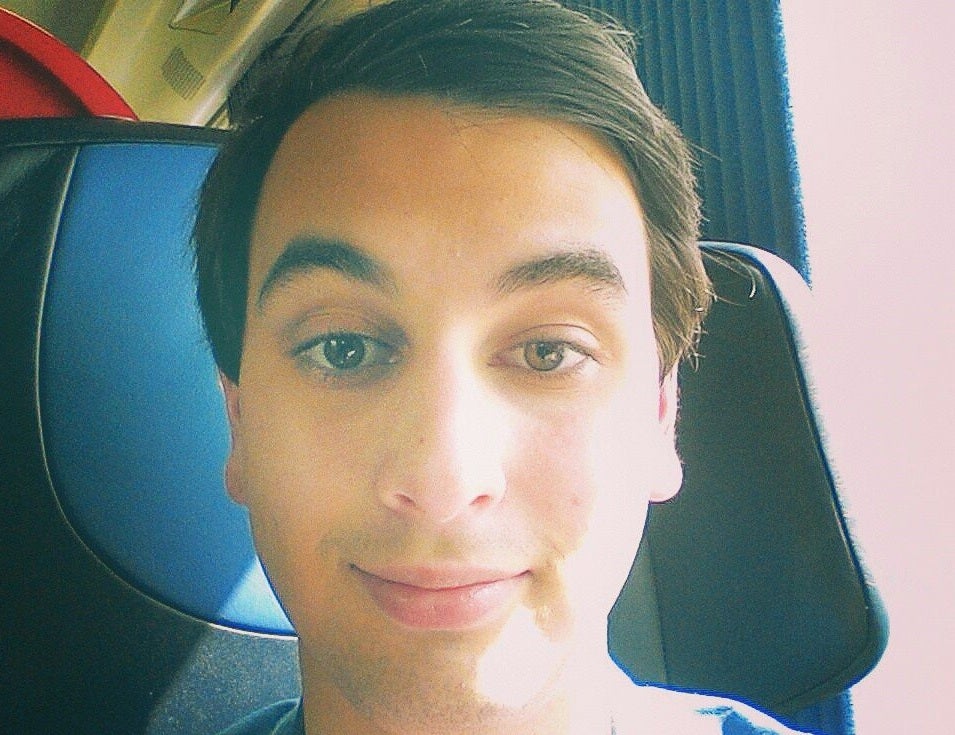Elliot Johnson: Parents of Tory activist ask coroner to consider his 'degrading' treatment
They appear in the same courtroom as one of their deceased son’s alleged tormentors

The parents of the young Conservative Elliott Johnson shared a courtroom with one of his alleged tormentors, as they asked a coroner to consider evidence that “degrading and inhuman” treatment by party members caused his suicide.
Ray and Alison Johnson attended a coroner’s court in Ampthill, Bedfordshire, for a pre-inquest review, five months after Elliott, 21, named Conservative Party organiser Mark Clarke and fellow activist Andre Walker in a suicide note.
Sitting across the aisle from Mr Walker, the family’s lawyer, Heather Williams QC, argued that the court should hear evidence of their son’s treatment as part of the inquest because it qualified as “degrading and inhuman” under human rights law.
Ms Williams also asked the coroner, Tom Osborne, to expand the list of inquest witnesses to include Mr Clarke and Mr Walker.
Mr Johnson’s death last September triggered an outpouring of allegations against Mr Clarke, the failed Tory parliamentary candidate who ran the party’s RoadTrip 2015 election campaign. Mr Clarke has strongly denied all allegations and did not attend the hearing.
Accusations that the Conservative Party had been made aware of complaints about Mr Clarke’s behaviour as early as 2008 led former co-chairman Grant Shapps to resign from the Government last November.
An inquiry ordered by the party is ongoing.

“Elliott’s family believe his death was directly linked to a series of events that occurred in the last few weeks of his life,” Ms Williams told the court.
“In particular, these involved bullying he experienced by Mr Clarke and those acting with him, and the action he faced in consequence, in particular the loss of his employment with his dismissal from Conservative Way Forward.”
Mr Johnson had hoped that joining the Thatcherite campaign group would be his springboard to Conservative politics.
He began looking up suicide methods a day after receiving a redundancy letter, Ms Williams’ stated in her written argument.

The argument included details of a complaint made by Elliott about a confrontation with Mr Clarke and Mr Walker a week before his job loss. “Mr Clarke went ‘ballistic’ at him, ‘grabbed my chin’ and told him that he had sued hundreds of people and he ‘squashes them like ants when they are small and young’,” it read.
Ms Williams also read an extract from Elliott’s suicide note. “These past few weeks have been the most difficult of my life,” he wrote. “I have been bullied by Mark Clarke and betrayed by Andre Walker. Now all my bridges are burnt. Where can I go from here?”
Ms Williams urged the coroner to consider “the risks Mark Clarke posed to other activists” and said that “there is a wider systemic picture”.
The Conservative Party was not represented at the hearing, but a lawyer acting for Conservative Way Forward argued that the evidence did not cross the threshold for degrading and inhuman treatment.
George Alliott said that if the scope of evidence were to be widened, it should also examine Elliott’s mental health and sexuality. Mr Alliott argued that a reference in Elliott’s suicide note to being unable to provide grandchildren to his parents suggested that they had fallen out, which the family rejects.
Their lawyer argued that Elliott was referring to his death, rather than his sexuality, as a barrier to providing grandchildren.
Mr Johnson had warned Mr Walker, who claims he was in a relationship with Elliott up until his death, to stay away from the hearing, likening him to “the murderer returning to the scene of the crime”.
The Johnsons did not comment, but Mr Walker said: “The issue about grandchildren… was clearly a reference to problems with Elliott’s sexuality within his family.”
“We need clarity on these issues and to understand the full thing and not just the very minor bits that the family and their solicitors want to put out.”
He did not respond when asked if he considered allegations of bullying to be “minor”.
The coroner will rule on 4 March how much evidence he will admit at the inquest, which he scheduled for 31 March.
